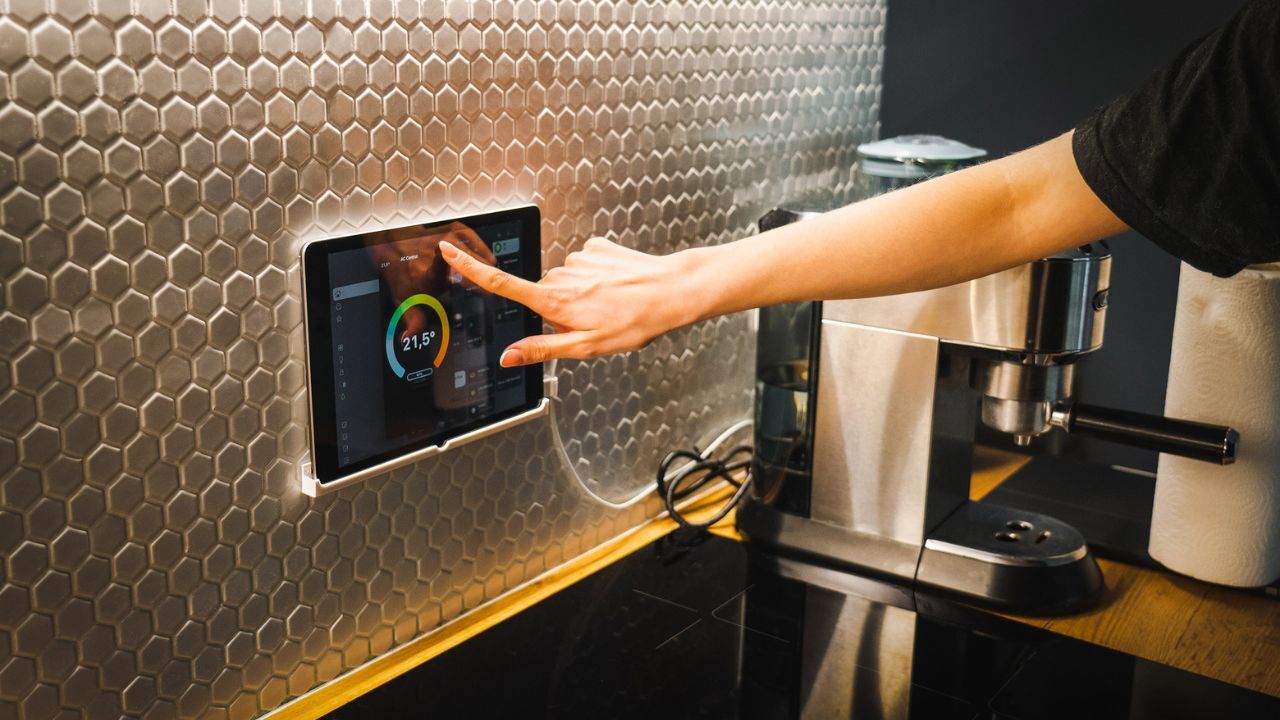 Smart Thermostats
Smart Thermostats
A smart thermostat is one of the most popular smart home upgrades. These devices allow homeowners to control heating and cooling remotely using a smartphone. Smart thermostats can learn your preferences over time, helping you save energy and reduce monthly utility costs. Buyers appreciate the combination of convenience and efficiency that smart thermostats offer, making them a worthwhile investment when preparing your home for sale.
Security Systems with Cameras
Modern security systems do more than sound alarms. Systems with cameras, motion detectors, and remote access features help homeowners monitor their property from anywhere. Potential buyers find these systems reassuring, especially those with families or frequent travelers. Installing a smart security system can enhance your home s value by adding a sense of safety and control.
Smart Lighting
Smart lighting systems allow you to adjust brightness and even color temperature through a smartphone app or voice command. You can create mood lighting or set schedules for lights to turn on and off automatically. Buyers are drawn to smart lighting because it adds both luxury and practicality. Motion-activated outdoor lighting can also improve security, which increases your home’s appeal.
Smart Locks and Doorbells
Smart locks eliminate the need for physical keys. Homeowners can unlock their doors using their smartphones or unique access codes, which makes managing access easier and more secure. Paired with video doorbells, these devices let homeowners see and speak with visitors, even when they are away. Buyers view these upgrades as modern essentials, adding both convenience and peace of mind to any home.
Whole-Home Smart Integration
Integrating various smart devices through a centralized system can significantly enhance your home s value. Voice-activated assistants and smart hubs allow homeowners to control lighting, climate, security, and entertainment from a single device. This level of control and customization appeals to tech-savvy buyers and can help your property stand out in a competitive market.
Adding smart home features is not just about modernizing your living space. It is about offering potential buyers a lifestyle of convenience, efficiency, and security. If you are considering upgrades before selling your property, focusing on these five smart home features can make a noticeable difference in both buyer interest and property value. Be sure to consult your real estate agent for advice on which upgrades would be most beneficial in your local market.
